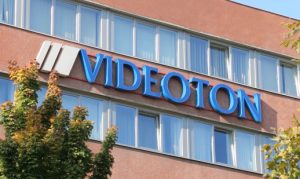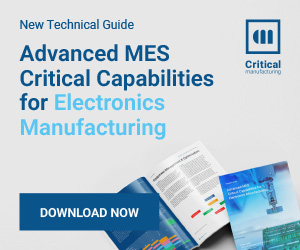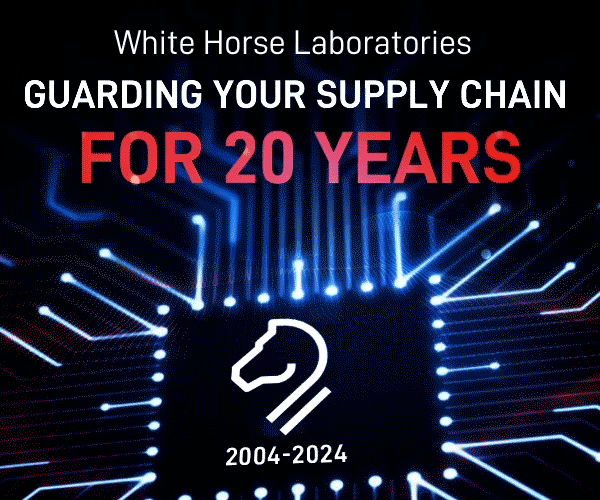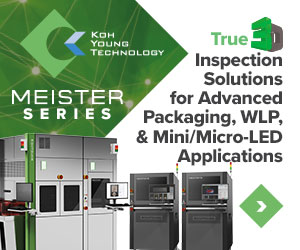EMSNOW CLASSIC: Executive Interview with Peter Lakatos and Otto Sinko, Videoton

“We handle the management of the member companies (15 closely controlled subsidiaries and 10 joint ventures) together. Peter Lakatos is primarily responsible for ongoing businesses, customer-supplier relations, business development, pricing issues. Otto Sinko is mainly responsible for the control of the financial management, treasury decisions, wealth, property utilisation – development, technical development, acquisition of innovative companies. The establishment of strategy, decisions on investment and acquisitions are made together. HR, inspection for management is done together in line with the personal fields of competencies evolving from the settled share of responsibilities.”
We asked Peter and Otto to explain other aspects of their unique management strategy for EMSNOW readers:

Otto Sinko
EMSNOW: For 2017 VIDEOTON was listed at #30 on the MMI Top 50 EMS list and experienced its 8th consecutive year of record revenue. Despite these accolades your company is a quiet success story that is not as well-known as many of your peer companies on the list. What are you most proud of about VIDEOTON’s growth and performance in 2017?
We are proud to own, restructure and rebuild a historically successful company over 2.5 decades. Our horizon is much longer then a single year’s performance. Behind brilliant sales and profit data might be fundamental problems which are forecastable knowing the insights; and vice versa, behind negative looking data might be the sprouts of a bright future. Our aim is to build a sustainably successful robust company. The 2008 crisis was a big milestone for us. That’s when our double digit growth really began. We are especially proud of the last 10 years as a whole, and not only 2017.

Peter Lakatos
EMSNOW: VIDEOTON began as a state-owned company making consumer electronics for the Soviet Union. How has that history impacted your development and capabilities?
The story you are talking about is 30 years old. At that time VT had competences in computing gear (mini-computers, printers, and terminals), defense electronics (system integration, direction finding, troop radios, etc.) and consumer goods. Once we took over, all the assets (human, real estate, manufacturing know-how, machinery) were converted to be integrated into the non-branded supply industry. This time we did not even know about the CM, EMS and similar terms.
We bought assets from liquidation in 1992, and “inherited” many good people but definitely not a working company with organization. The technological knowledge was a value but the products were only burdens, as they were not competitive.
EMSNOW: Your company tagline is “One Company – Infinite Possibilities.” Please tell us what this is meant to communicate to customers?
This suggests that we are a set of companies, which are standalone market players but together they create a vertical integration. Our customers have infinite choice of which services to use and how to combine them. One of our customers defined it as a one-stop-shop where you can get the all the ingredients of a meal but it is your choice which one to buy here, or whether to ask us to prepare the food and eventually cook it.
EMSNOW: Your factories are all located in one geography – Eastern Europe – which is unusual for an EMS as large as you have become. What is the strategy behind the decision to maintain your facilities only in this one geography? And do you receive any pressure from customers to develop facilities in other global regions?
Yes, we got pressures to provide global services as early as 1998. Our intention is to do only things where we have demonstrated competency. It does not mean we always succeed, but at least we believe we can. Technology wise we are more a follower. As headquartered and rooted in Central and Eastern Europe (CEE), we are not as integrated to the epicenter of technological development as we wish. Because of that we don’t think just by creating a Mexican or Chinese or Malaysian operation we would be competitive enough against local incumbents. It is our strength to have a small and compact top management. To strive for a global presence would require a mostly different team. Never say never, but currently the challenges and opportunities use the full capacity of the wider management team.
We always trusted in the CEE region as a competitive manufacturing location for Europe. Here we know the culture and the people, which is our competative advantage as compared to global companies. We do not want to compete on other continents, where many others have that local advantage but we don’t.
EMSNOW: VIDEOTON is strong in the automotive industry. Will future growth come mainly from deeper penetration in that vertical or will you be growing business in other markets as well?
We have no preferences over industries. We like to have the risk as widely spread as possible. So more diversification, more industries, more customers (up to a reasonable complexity) is our goal. It is much more important to shape our customer portfolio, having “good customers”. They have the following properties: leading in technology, innovation and new ideas, growing market, appetite for growth. Such customers need flexible suppliers with exceptional quality, technical insight, full commitment but they make money conceptually from higher revenues, not from lower cost. They need a fair price for the perfect service, not a rock-bottom price for a fair service. They are full of engineers, with open ears for our ideas, and CM partnership is not a zero sum game in their mind but a co-creation process. So our aim is to be able to provide the perfect service. As innovation is globally shifting towards young companies (startups from yesterday), it is in our focus to build a bigger share of our revenues with such young stars. Luckily Europe is awakening in this regard.
We have become more focused technologically, while keeping and even deepening vertical integration at some areas. In PCBA, box built and system integration we have the privilege to be contracted for much more sophisticated application than before. In the field of mobile power we see lately a lot of opportunities.
EMSNOW: Your business model includes non-traditional EMS services such as business park management and manpower transportation, and providing services for other EMS companies. Do you see these activities as growth opportunities in the future, and how do you manage to maintain relationships when companies can be both competitors and customers?
Our structure is public and transparent. Each company and each business unit has standalone management. There were no conflicts of interest over the 25 years in this regard. We have the same technologies as the biggest EMS/CM-s of this world but the sweet spot for account size is hardly overlapping.
We traditionally have certain resources and capabilities for such services. We plan to utilize them in the future; it does not interfere with competitors or customers at all but the growth will come from our core EMS activities.
EMSNOW: What do you see as the major challenges and opportunities for the EMS industry both in Europe and other global markets in the next 2 years?
We do not wish to comment on the challenges of the industry. For us the challenges are: 1. human resources, 2. human resources, 3. human resources (quantity, quality, motivation), 4. Automation, data collection and evaluation (Industry 4.0), and negotiating with customers on prices in an inflationary environment, which the youngest generation has never even heard of.
EMSNOW: What else would you like to say to our EMSNOW readers?
Good luck for all of us – fewer trade wars, more innovation!











